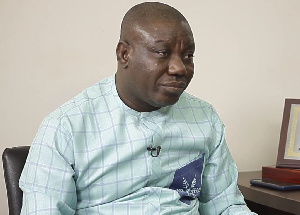The Member of Parliament for Bolga Central, Isaac Adongo has said Ghana’s debt remains unsustainable and as such cannot support the minimum compliance requirement of the IMF to secure a program.
An IMF staff team led by Stéphane Roudet, Mission Chief for Ghana, has been in the country since December 1, in continuation of discussions with the government.
The aim is on the country’s post-COVID-19 programme for economic growth, its associated policies and reforms that could be supported by a new IMF lending arrangement.
The IMF staff and the Ghanaian authorities have reached a staff-level agreement on economic policies and reforms to be supported by a new three-year arrangement under the Extended Credit Facility (ECF) of about US$3 billion.
Commenting on the issues on the Morning Starr Mr. recommended that the Bank of Ghana (BoG) must implement reforms to curb the lack of credibility of monetary policies.
“As of yesterday not a single bond holder had signed up to the bond exchange program. So our debt still remains where it is. Our debt is still unsustainable and cannot support the minimum compliance requirement of the IMF to be sustainable for you to have a program.
“There are key monetary policy questions that under theme the lack of credibility of monetary policy. Which is creating part of the inflation that we are seeing and part of it, is what is causing the depreciation of the Cedi and the escalating interest rate.
He continued: “So there has to be some tightening and some policy making some of which may require reforms to the Bank of Ghana Act and all of that in order to reign in fiscal dominance which is the government borrowing excessively from the Bank of Ghana. So those measures have to be put in place.”
According to the Bolga Central MP, although Ghana has been able to sign the Staff-level agreement with the creditors, that however is not a guarantee to getting the $3 billion loan.
“You are aware that during the Sri Lanka experience they had a Staff-level agreement which was heading for almost one year. But because they haven’t been able to properly deal with the debt sustainability equation they have not been able to move forward. It took Zambia over a year to reform an agreement with his key creditor which is China. So the fact that you have signed the staff level agreement is not a guarantee that you will get the program. But then it signals the areas that you need structuring. It signals the conditions precedent to securing a deal. In our case, the biggest stumbling block is the debt exchange program,” he stated.
Source: starrfm.com.gh




